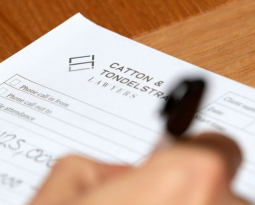Skipping the queue in a family law system under pressure
It has been well publicised in the media for some time, but if you haven’t heard it before, our family law system is under significant pressure.
Courts are underfunded, Judges are over stressed, and the system overall is beyond capacity. We are hearing of families being failed by our family law system.
But what if we considered the alternatives that are available?
Being a family lawyer in today’s times of pressure and uncertainty has bought about opportunities to think carefully and strategically about how to best provide optimal services to our clients.
By looking at the alternative options, it has caused me to compare our family law legal system with our Australian health system. How, might you ask?
Similarities between the Health and Family Law systems
There are striking similarities between the health and family law systems when consideration is had to how those services are provided.
In the public health system, if you require surgery that is not considered life-threatening, you are generally placed in a list and told you will be called when it is your time and your surgeon allocated when a surgeon becomes available. You do not know who that surgeon will be, or how long you will be waiting, but you could be waiting a very long time. The surgeon is free, but at what cost to the uncertainty in your life?
Similarly, in the family law system, if you cannot resolve a family law dispute (whether that be property settlement or parenting arrangements), you apply to the court for a Judge to make a determination on your behalf. When you apply to the court you do not know which judge you will be allocated, and you do not know when you will receive your first court date. Your first court date will be provided to you to fit the availability of the Judges within the court system.
As family lawyers what we know is that it is usually several months from when you make your application to the first court date and up to two years from when you request a trial that you may get one allocated (unless you fall within a small category of cases which have some extremely urgent circumstances that warrant the matter being heard more quickly).
However, like the public health system, which has a privately paying option, so too are there private options within the family law system that are often overlooked by people who are all too keen to assert their rights to have their day in court and therefore be placed in the very long waiting list that whilst giving a legal outcome eventually, brings about unjust outcomes due to the time, stress, and costs associated with the uncertainty and delay of the court process.
In terms of a court hearing, the alternative is to engage an arbitrator who can provide a service which is like a court hearing called “arbitration”. Arbitration can be booked at a time that suits you and the other party and each of the legal representatives concerned, and you can determine what arrangements will be made for the holding of the arbitration including whether your evidence will be given by phone, by cross-examination (which is the only option available through the court process), or, simply on the papers (meaning that each party files all of their evidence in writing and there is no questioning by way of cross-examination – which is often a torturous process).
In this pseudo “private” family law system, decisions can be made very quickly and are just as binding as if they are made by the court (subject to a few unique and specialised exceptions).
What about the cost?
While some may see the downside to opting for a “private” system versus a “public” system may be “the cost”, in family law the costs saved by avoiding delay and uncertainty will usually well outweigh the cost of using an arbitrator (that is, effectively paying for your own private legally qualified and experienced decision-maker).
In family law disputes, peoples lives continue to evolve and change, and when their circumstances change over time, so too can the appropriate outcome for their case. What might have been an application in relation to assets that have certain values at the time you file your application, can be a completely different asset pool by the time you reach your court appearance and trial, several months, or even years, later.
This uncertainty means that, even with the best of lawyers, the outcome generated through a delayed court process can be significantly different to that which was advised to a client on the commencement of the matter, and this is what is referred to when the media talk of our family law system failing families.
On the other hand, having a matter set down for arbitration quickly with the agreement of the other party means that a decision can be determined within weeks, rather than months and years, and each party can move on knowing that they have prepared their evidence once, and all steps are taken within a short space of time, along with the final outcome received in a short space of time.
The certainty brought about by not having to prepare and then re-prepare material (once it becomes outdated), exchange bank statements and financial documents over and over, revalue assets, and re-advise in relation to outcomes after significant periods of time (all of which come at additional cost) are benefits that not only have financial attributes but significant emotional attributes that contribute to a person’s overall well being.
As a family lawyer having practised in family law for over 16 years, I know too well the trauma that being stuck in the family law system, without any options, can impose upon clients. Advocating at an early stage to take control over proceedings will generally and in most cases, bring about better outcomes.
For an initial free consultation about better outcomes for your family law dispute, please contact Catton and Tondelstrand lawyers.
 |
Angela Tondelstrand
Director |







